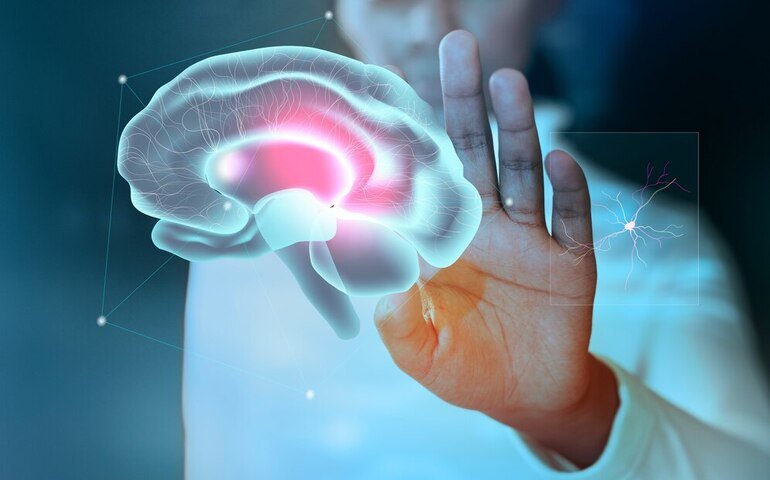Course Features
Price
Study Method
Online | Self-paced
Course Format
Reading Material - PDF, article
Duration
5 hours, 15 minutes
Qualification
No formal qualification
Certificate
At completion
Additional info
Coming soon
- Share
Overview
Who is this course for?
Requirements
Career path
-
- Introduction to Neuroanatomy 00:10:00
- Gross anatomy of the brain 00:10:00
- Histology of the nervous system 00:10:00
- Major brain regions and their functions 00:10:00
- Sensory and motor pathways 00:10:00
-
- Introduction to Neurophysiology 00:10:00
- The neuron and its functions 00:10:00
- Synaptic transmission and plasticity 00:10:00
- Action potential and impulse propagation 00:10:00
- Sensory and motor systems 00:10:00
- Introduction to Cognitive Neuroscience 00:10:00
- Perception and attention 00:10:00
- Learning and memory 00:10:00
- Language and communication 00:10:00
- Emotion and motivation 00:10:00
- Introduction to Clinical Neuroscience 00:10:00
- Neurological disorders 00:10:00
- Neurodegenerative diseases 00:10:00
- Neuropsychiatric disorders 00:10:00
- Neurorehabilitation 00:10:00
- Premium Certificate 00:15:00

Is this certificate recognized?
Yes, our premium certificate and transcript are widely recognized and accepted by embassies worldwide, particularly by the UK embassy. This adds credibility to your qualification and enhances its value for professional and academic purposes.
I am a beginner. Is this course suitable for me?
Yes, this course is designed for learners of all levels, including beginners. The content is structured to provide step-by-step guidance, ensuring that even those with no prior experience can follow along and gain valuable knowledge.
I am a professional. Is this course suitable for me?
Yes, professionals will also benefit from this course. It covers advanced concepts, practical applications, and industry insights that can help enhance existing skills and knowledge. Whether you are looking to refine your expertise or expand your qualifications, this course provides valuable learning.
Does this course have an expiry date?
No, you have lifetime access to the course. Once enrolled, you can revisit the materials at any time as long as the course remains available. Additionally, we regularly update our content to ensure it stays relevant and up to date.
How do I claim my free certificate?
I trust you’re in good health. Your free certificate can be located in the Achievement section. The option to purchase a CPD certificate is available but entirely optional, and you may choose to skip it. Please be aware that it’s crucial to click the “Complete” button to ensure the certificate is generated, as this process is entirely automated.
Does this course have assessments and assignments?
Yes, the course includes both assessments and assignments. Your final marks will be determined by a combination of 20% from assignments and 80% from assessments. These evaluations are designed to test your understanding and ensure you have grasped the key concepts effectively.
Is this course accredited?
We are a recognized course provider with CPD, UKRLP, and AOHT membership. The logos of these accreditation bodies will be featured on your premium certificate and transcript, ensuring credibility and professional recognition.
Will I receive a certificate upon completion?
Yes, you will receive a free digital certificate automatically once you complete the course. If you would like a premium CPD-accredited certificate, either in digital or physical format, you can upgrade for a small fee.
Course Features
Price
Study Method
Online | Self-paced
Course Format
Reading Material - PDF, article
Duration
5 hours, 15 minutes
Qualification
No formal qualification
Certificate
At completion
Additional info
Coming soon
- Share
MSP Best Practices: Delivering Quality Services and Support
Course Line237£490.00Original price was: £490.00.£14.99Current price is: £14.99.IELTS Vocabulary Booster for Band 7+
Course Line237£490.00Original price was: £490.00.£14.99Current price is: £14.99.Media Production Level 3 Advanced Diploma
Course Line241£490.00Original price was: £490.00.£14.99Current price is: £14.99.
Related Courses
Neurology Level 3 Advanced Diploma
£490.00Original price was: £490.00.£14.99Current price is: £14.99. 238
238Medical Secretary Level 3 Advanced Diploma
£490.00Original price was: £490.00.£14.99Current price is: £14.99. 239
239Naturopathy Level 5 Advanced Diploma
£490.00Original price was: £490.00.£14.99Current price is: £14.99. 240
240
Related Courses
Neurology Level 3 Advanced Diploma
£490.00Original price was: £490.00.£14.99Current price is: £14.99. 238
238Medical Secretary Level 3 Advanced Diploma
£490.00Original price was: £490.00.£14.99Current price is: £14.99. 239
239Naturopathy Level 5 Advanced Diploma
£490.00Original price was: £490.00.£14.99Current price is: £14.99. 240
240








Good course.
A bit basic but good.